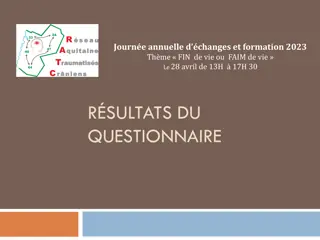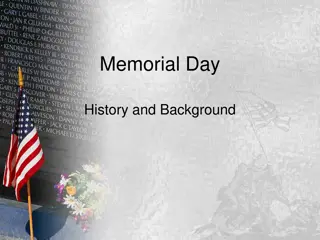Life in Edo: A Day in Shibahama
Journey through the bustling Edo era as Katsu navigates the fish market, confronting his past promises and present struggles. Explore themes of responsibility, redemption, and perseverance in this captivating narrative depicting a slice of historical Japanese life.
Uploaded on Feb 28, 2025 | 0 Views
Download Presentation

Please find below an Image/Link to download the presentation.
The content on the website is provided AS IS for your information and personal use only. It may not be sold, licensed, or shared on other websites without obtaining consent from the author.If you encounter any issues during the download, it is possible that the publisher has removed the file from their server.
You are allowed to download the files provided on this website for personal or commercial use, subject to the condition that they are used lawfully. All files are the property of their respective owners.
The content on the website is provided AS IS for your information and personal use only. It may not be sold, licensed, or shared on other websites without obtaining consent from the author.
E N D
Presentation Transcript
A W1
Foreign policy strategy the essence of choice Foreign policy politics the process of choice
(Quasi anarchy) (system structure) (state structural position)
: 4Ps Power Peace Prosperity Principles
a time of great promise unparalleled opportunity to work toward transforming this new world into a new world order, one of governments that are democratic, tolerant and economically free at home and committed abroad to settling differences peacefully, without the threat or use of force (George H.W. Bush, 1993)
the train of globalization cannot be reversed global trade will lift hundreds of millions of people out of poverty but globalization needs a more human face (Bill Clinton, 2000)
It will not end until every terrorist group of global reach has been found, stopped and defeated (George W. Bush, 2002)
This century s threats are at least as dangerous as and in some ways more complex than those we have confronted in the past not to give way to pessimism. Rather it is a call to action to a new vision of leadership in the 21stcentury geared towards a common security for our common humanity (Barack Obama, 2007.
America s Future 1. Declinism one side in the persistent debate about the future of American power and influence. Declinists believe that the relative power position of the U.S. is waning.
America s Future Major Text: Kennedy s The Decline and Fall of the Great Powers Thesis: Corroding effects of imperial overstretch
America s Future 2. American Exceptionalism the other side of the debate on the future of America s power. They believe that America is unique in world history, and thus will continue to grow in power and influence.
America s Future Major Text: Nye s Bound to Lead Thesis: American leaders will take the long view and will seek to adapt to changing future circumstances
America s Future Major Text: Fukuyama s The End of History and the Last Man Thesis: The fall of the Soviet Union and U.S. victory in the Persian Gulf are proof that there is no better system in history than democracy and capitalism. Hence, history will end with these systems
America s Future 3. Neoimperialism an alternative to both theories. This theory suggests that while American leaders focus on global leadership, they are ignoring pressing social, economic, and political problems at home
America s Future Major Text: Petras and Morley s Empire or Republic? Thesis: As empire expands, the republic declines
US Foreign Policy Walter Russell Mead s Four Schools of American Foreign Policy The Jacksonian Tradition , The National Interest, 58, Winter 1999/2000
US Foreign Policy 1. Jacksonian (7thPresident, 1829-1837) a. First priority physical security and economic well-being of the American populace b. US should not seek out foreign quarrels but should fight to win if war starts c. Values self-reliance above all d. Jacksonian presidents Reagan; Bush II
US Foreign Policy 2. Hamiltonian a. First priority economic primacy of the US (mercantilism) b. The relationship between government and big business is key to survival and success of a country c. Legacies IMF, World Bank, NAFTA, WTO d. Hamiltonian presidents Bush I; Clinton
US Foreign Policy 3. Jeffersonian (3rdPresident, 1801-1809) a. First priority protection of American democracy on the home front b. Foreign entanglements always bad for democratic systems and highly skeptical of projects that involve the US abroad c. Legacies ACLU d. Jeffersonian presidents none in the 20thcentury
US Foreign Policy 4. Wilsonian (28thPresident, 1913- 1921) a. First priority spreading American democratic and social values throughout the world b. US should be involved in the world with a peaceful international community based on the rule of law c. Legacies the United Nations d. Wilsonian presidents McKinley; Carter






















